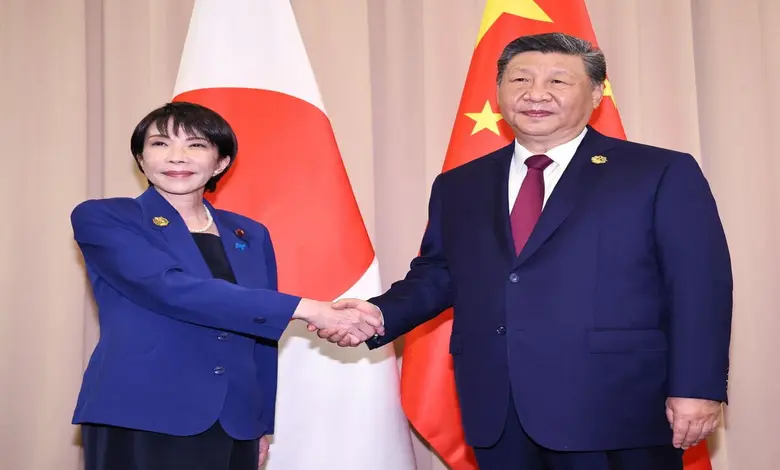Tensions between China and Japan show no signs of abating following Prime Minister Sanae Takaichi’s provocative statements on Taiwan, with recent high-level talks ending on a sour note for Beijing’s representative.
Liu Jinsong, director-general of the Chinese Foreign Ministry’s Department of Asian Affairs, expressed clear frustration after his Tuesday meeting with Japanese counterpart Masaaki Kanai, director-general of Japan’s Foreign Ministry’s Asian and Oceanian Affairs Bureau. In comments reported by Chinese news outlet The Paper, Liu described himself as “dissatisfied” with the outcome, underscoring the depth of the divide.
The discord traces back to Takaichi’s recent address, marking her as the first Japanese prime minister in decades to openly connect a potential crisis in the Taiwan Strait to the prospect of deploying Japanese forces. Beijing responded with immediate condemnation, issuing stern warnings of further repercussions. Chinese state media lambasted the remarks, declaring they “sound a stark warning that Japan’s militarist demons are being summoned anew.”
China has pressed for Takaichi to withdraw her comments entirely. On the Japanese side, Kanai stood firm during the discussions, affirming that Tokyo’s longstanding stance on Taiwan has not shifted. He also forcefully rejected recent “extremely inappropriate statements” from Xue Jian, China’s consul general in Osaka, whose now-deleted X post threatened to “cut off” Takaichi’s head. Japanese officials have called for swift disciplinary measures against the diplomat.
This exchange of barbs highlights a broader strain in bilateral relations, already frayed by the Taiwan controversy. Adding to the friction, Beijing has issued a travel advisory urging Chinese nationals to steer clear of Japan. The alert prompted at least two state-run travel agencies to cancel pre-booked group tours, according to Bloomberg, which cited sources close to the situation. State-owned enterprises have instructed staff to postpone trips, while investment firms, banks, and brokerages have circulated internal alerts this week, per the same report.
The advisory rippled through markets, sparking a brief but steep decline in shares of Japan’s leading tourism and retail companies—some dropping as much as 11%—before partial rebounds.
As both nations dig in, the failed dialogue serves as a stark reminder of the fragile balance in East Asian geopolitics, with Taiwan remaining a flashpoint that could further erode decades of cautious neighborly ties.
